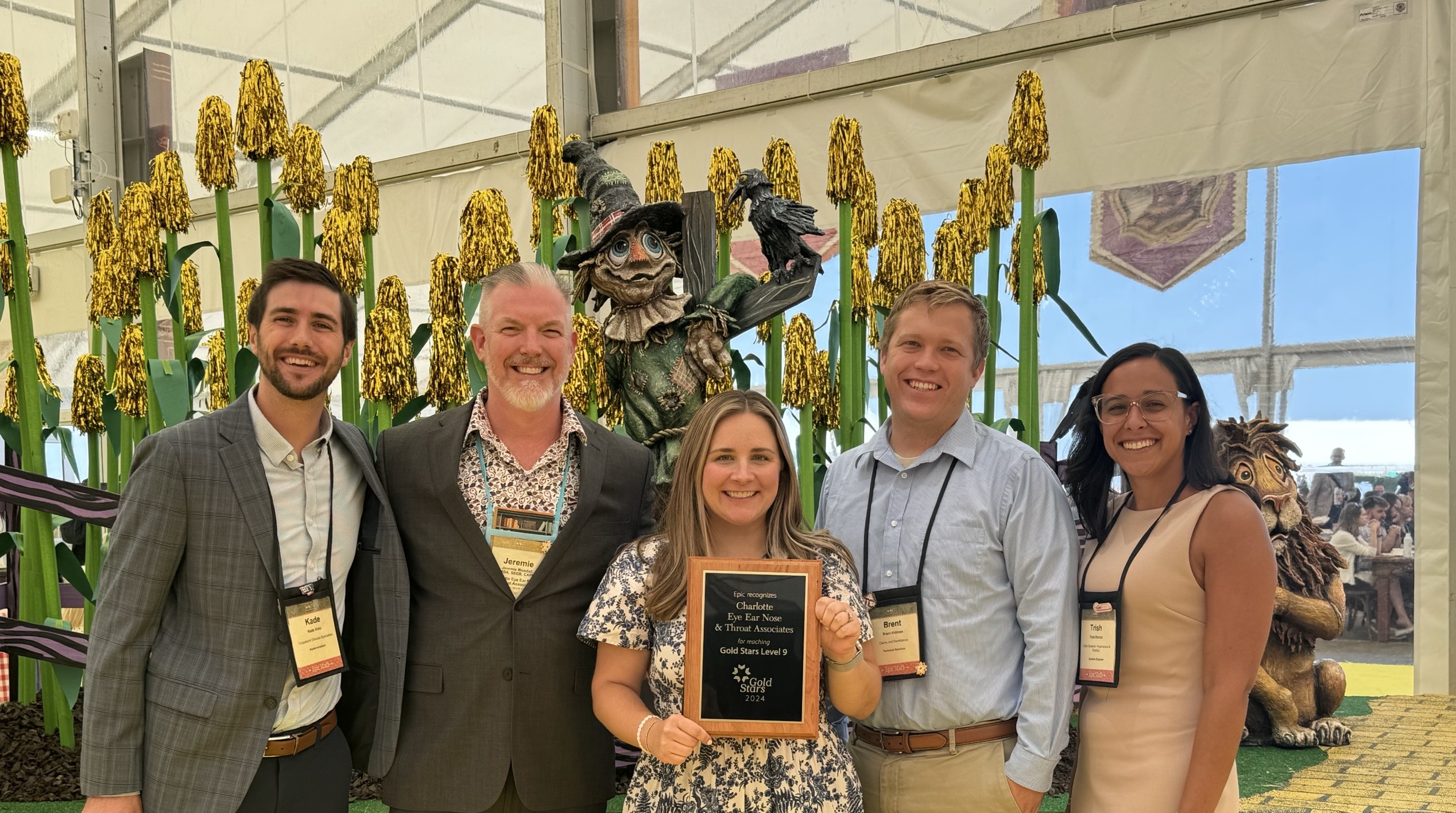The Gold Stars program helps organizations assess how effectively they use Epic and identify opportunities for improvement. Technical Services (TS) are critical to this effort, guiding organizations in optimizing their system use and advancing through the Gold Star levels.

Find Innovative Solutions
Dive deep into our software to troubleshoot complex issues, maintain system stability, and drive continuous improvement for healthcare organizations. Build expertise across applications, debug problems at their root, and collaborate with customers to optimize processes and implement strategic upgrades.

Impact the Future of Health
Optimize software that touches the lives of over 325 million people worldwide. You’ll shape how Epic applications are configured and supported for each organization’s unique needs. Your work will directly impact how healthcare systems use our software to improve care delivery, streamline operations, and achieve long-term success.

Build Long-Term Partnerships
You’re more than a go-to expert on Epic—you’re a trusted partner helping healthcare organizations achieve long-term success. Technical Services combines problem-solving with relationship-building, giving you the chance to make a direct, lasting impact on patient care.
What We Do

Enabling Better Care With Ambient Voice Technology
The team helps healthcare organizations implement Ambient Voice Recognition (AVR), reducing clinician burnout by cutting down documentation time. This technology allows providers to spend more time with patients and less time typing notes. We develop dashboards, usage reports, and support tools to ensure effective adoption and lasting impact. Through this work, we help deliver a better clinician experience and more meaningful patient care.


Detecting Lung Cancer Earlier with AI
We collaborated with healthcare organizations to implement AI-powered workflows that use Large Language Models (LLMs) to generate structured follow-ups from radiology reports. Within six months, one organization identified and began treatment for 50 patients with early-stage lung cancer based solely on AI-flagged findings. Since early 2025, over 20 organizations have adopted this functionality, enabling more than 1,000 additional patients to begin treatment at earlier stages of cancer.
Meet the Team
I love working with customers every day. As a Technical Solutions Engineer, I get to meet some interesting people and build relationships with them. We become a team, sharing triumphs, struggles, and even debates about which pizza topping is best (obviously, it's ham and pineapple).
My favorite memory as a Technical Solutions Engineer is working with our Unified Communications team to solve a complex, integrated issue with push notifications. We ended up flying to New York City in early 2020 to work with the customer and Apple to identify a workaround, design a fix, and get it released on a quick timeline. I had the opportunity to work with so many smart and helpful employees at Epic from the quality management, development, and implementation roles.
In engineering classes, I learned to think critically, recognize patterns, and use logic to solve problems. I use these skills every day, whether I’m helping a hospital improve workflows, solving technical problems, or even assisting our development teams with future planning. I really enjoy the variety in the day-to-day. There are infinite opportunities here to explore your existing passions or to find new ones.
My favorite part of my day-to-day is solving those impactful mysteries. It is so rewarding when healthcare organizations bring me a problem in their hospital, and I can help figure it out. I get to put together the puzzle pieces of system configuration, end user workflows, and training to try to get at the best solution to the problem. Epic is looking for smart people who have an inherent curiosity and are willing to learn.
Healthcare is burdened by costs. When we think of reform, one idea is to shift to a model that rewards positive patient outcomes. Healthy Planet is our tool to let customers track outcomes and reduce costs. As a leader of Healthy Planet, I’m dedicated to the success of our customers, because success in this area is a stepping stone toward a paradigm shift in our healthcare system.
If you can’t measure a patient’s experience, you can’t improve it. We need to analyze every step the patient takes, and that includes how they pay for services. We call that patient financial experience, and I develop data frameworks to help our customers better understand it. The reports I share are another tool for executives to sharpen their vision for the organization’s future.
Before becoming the group lead for the opioid management group, I was familiar with the opioid crisis because I had a customer in Oklahoma around the start of the outbreak. Since becoming the lead, I've become very passionate about stopping the opioid epidemic. It's a huge responsibility and I'm constantly asking myself, 'Are we doing enough to make sure we make an impact?' It's a lot of pulling the right people together and I'm lucky to work with a great team.
Surgery generates significant revenue for a hospital, but also incurs significant costs. A project I’m working on is using analytics to help reduce those costs. The functionality we developed informs providers how their use of disposable supplies, like scalpels, compares with other surgeons performing the same procedure. It enables the providers to be conscious of the amount and price of the supplies they use, which has so far resulted in savings of hundreds of thousands of dollars at one organization.
What Will Your Path Be?

1 Year
1 Year
Travis became a mentor, which gave him opportunities to challenge himself, connect with others on his team, and become more familiar with how his team works.

2 Years
2 Years
Christopher moved to the UK, and began working in a scrappy start-up environment while navigating the healthcare communities abroad.

3 Years
3 Years
Sun became a coordinator for the People of Color (POC) Team Lead group, providing resources to POC at Epic interested in leadership, wanting guidance, or seeking a mentor as they become a Team Lead.

3 Years
3 Years
Sarah became a Division Lead and met with leaders from customer organizations and internal applications to prioritize projects, troubleshoot challenges, and celebrate successes.

5 Years
5 Years
Laurel became the Client Systems Application Lead and helped set the direction for our customers' future IT projects.

5 Years
5 Years
Jeremy transferred from implementation to Technical Services and became a Technical Coordinator, where he worked with upper level hospital leadership and got to understand what makes organizations tick.

10 Years
10 Years
Ben helped launch an application and set up data analytics framework for one of our newest apps.
FAQs
.svg)
What does a normal day look like?
What does a normal day look like?
No two days look exactly the same in this high-impact, customer-focused role. You’ll spend most of your time working on projects that directly impact our customers. One day, you may present to a hospital executive, and another day you may meet with your product lead to pursue a passion project that will impact multiple community members.
.svg)
How often do you travel?
How often do you travel?
On average, the team travels once every few months to support our customers in person.
.svg)
What technical knowledge is required?
What technical knowledge is required?
We look for people with inquisitive, analytical minds who want to understand how things work. No specific programming expertise is required; we'll train you to be an expert.














